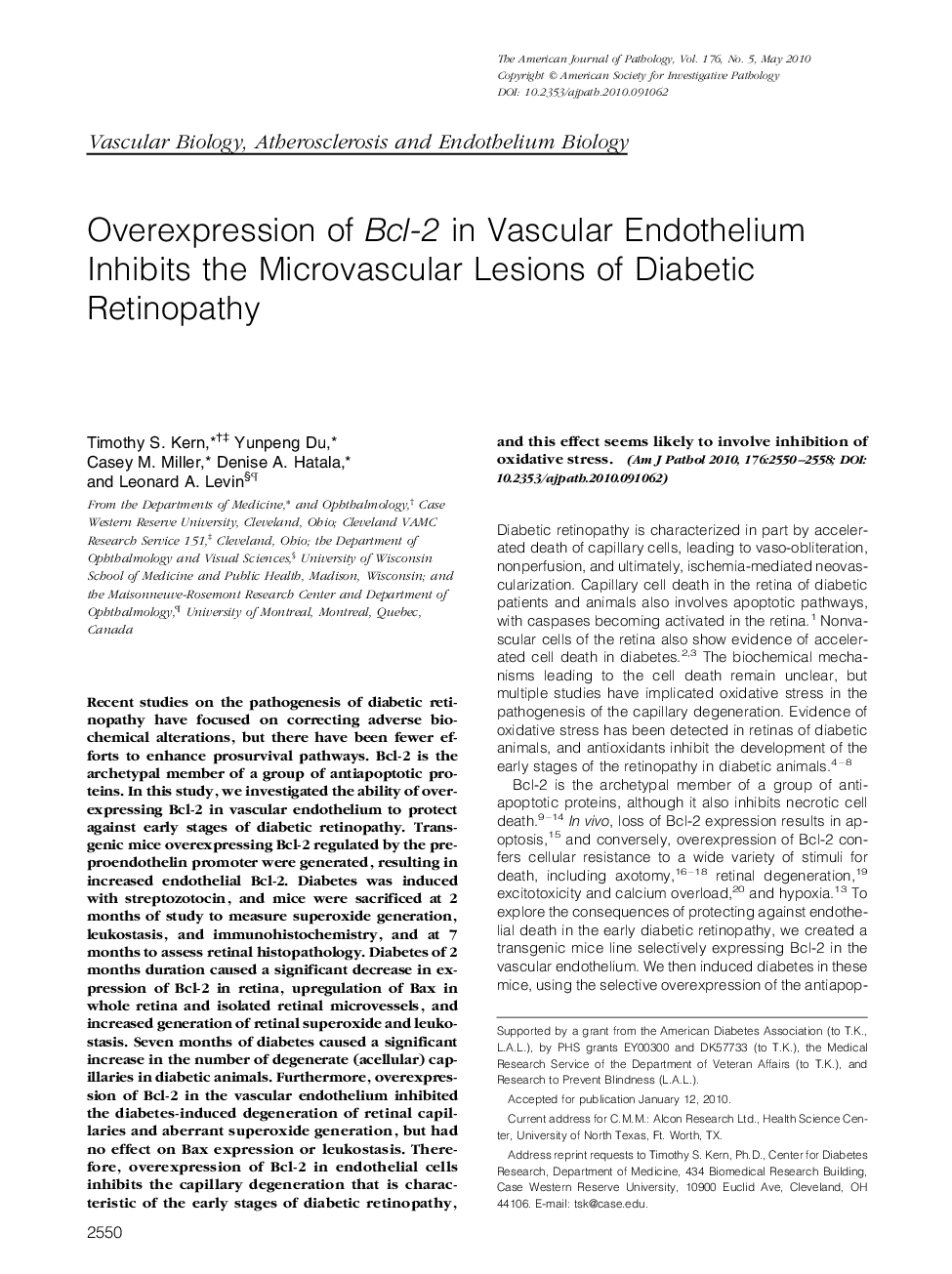| Article ID | Journal | Published Year | Pages | File Type |
|---|---|---|---|---|
| 5935787 | The American Journal of Pathology | 2010 | 9 Pages |
Recent studies on the pathogenesis of diabetic retinopathy have focused on correcting adverse biochemical alterations, but there have been fewer efforts to enhance prosurvival pathways. Bcl-2 is the archetypal member of a group of antiapoptotic proteins. In this study, we investigated the ability of overexpressing Bcl-2 in vascular endothelium to protect against early stages of diabetic retinopathy. Transgenic mice overexpressing Bcl-2 regulated by the preproendothelin promoter were generated, resulting in increased endothelial Bcl-2. Diabetes was induced with streptozotocin, and mice were sacrificed at 2 months of study to measure superoxide generation, leukostasis, and immunohistochemistry, and at 7 months to assess retinal histopathology. Diabetes of 2 months duration caused a significant decrease in expression of Bcl-2 in retina, upregulation of Bax in whole retina and isolated retinal microvessels, and increased generation of retinal superoxide and leukostasis. Seven months of diabetes caused a significant increase in the number of degenerate (acellular) capillaries in diabetic animals. Furthermore, overexpression of Bcl-2 in the vascular endothelium inhibited the diabetes-induced degeneration of retinal capillaries and aberrant superoxide generation, but had no effect on Bax expression or leukostasis. Therefore, overexpression of Bcl-2 in endothelial cells inhibits the capillary degeneration that is characteristic of the early stages of diabetic retinopathy, and this effect seems likely to involve inhibition of oxidative stress.
